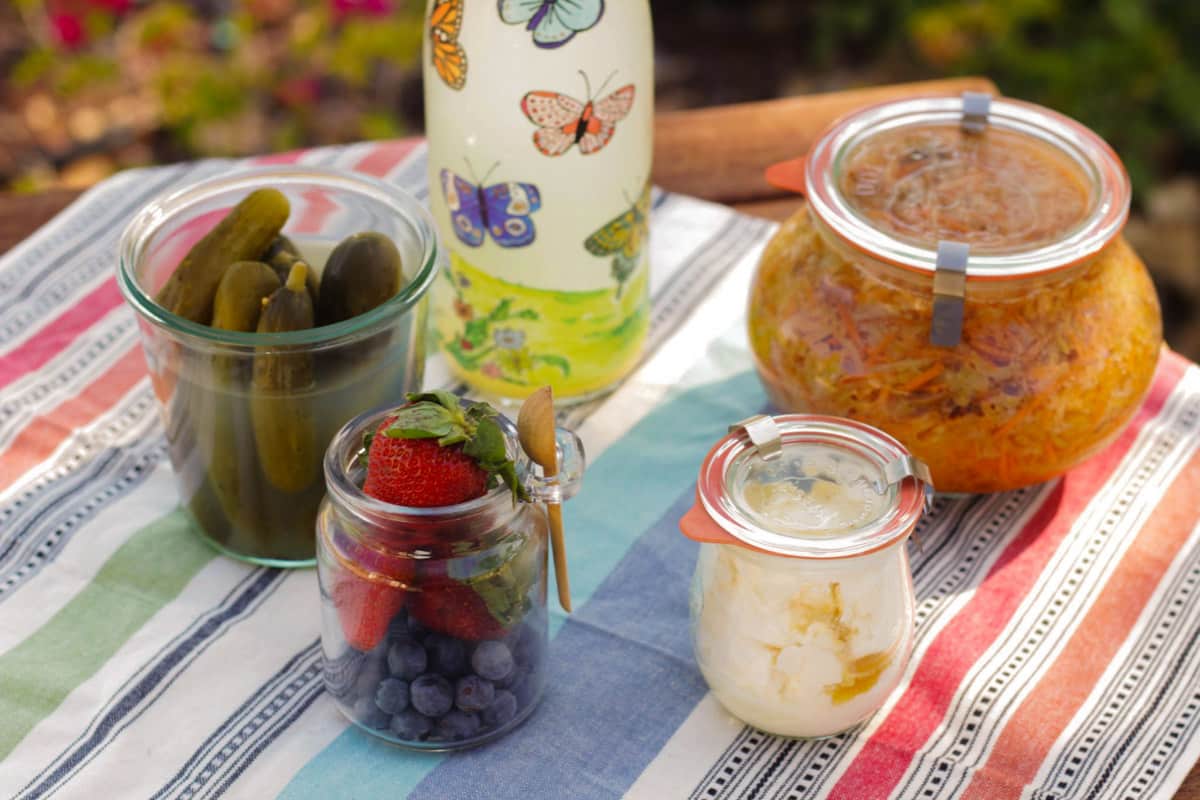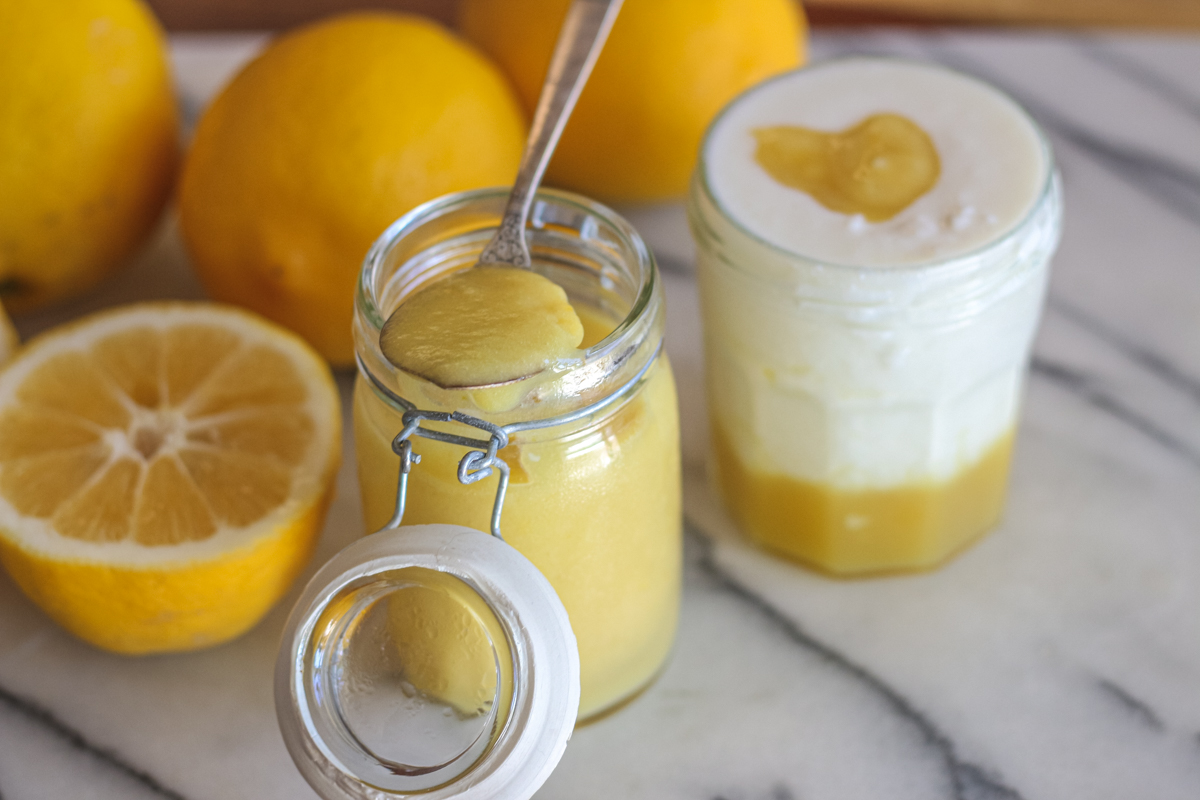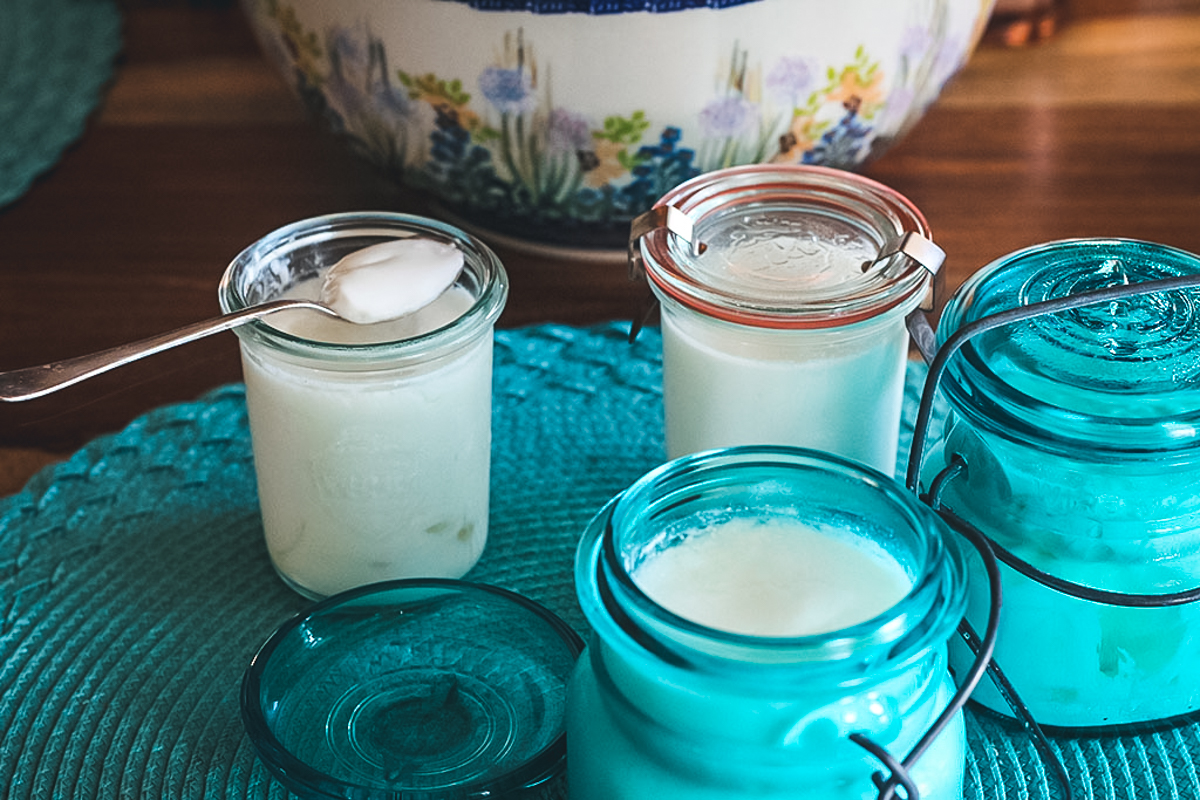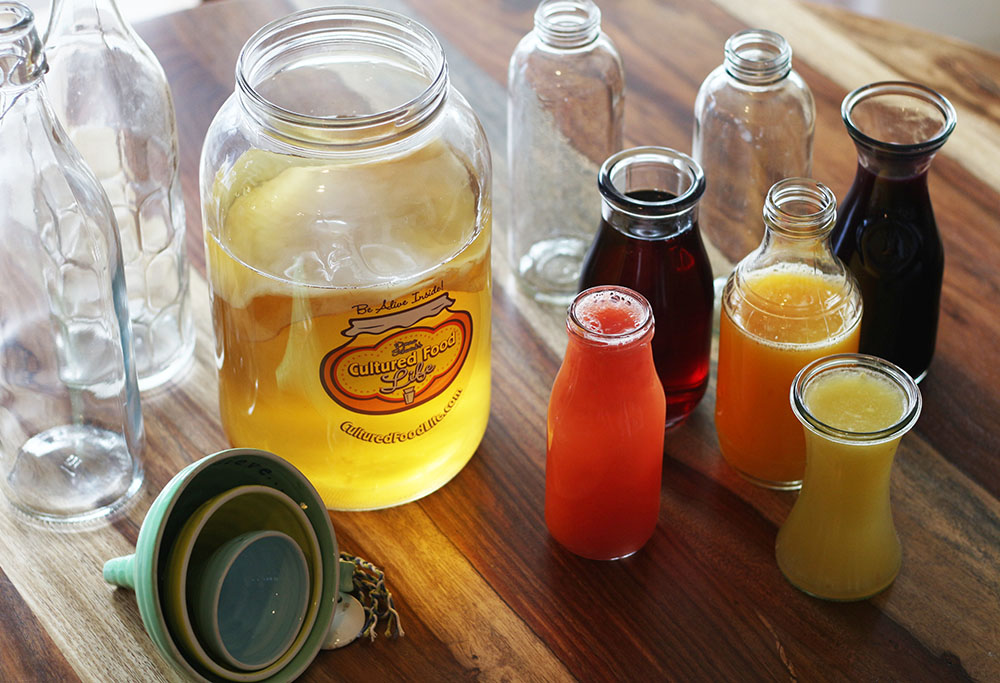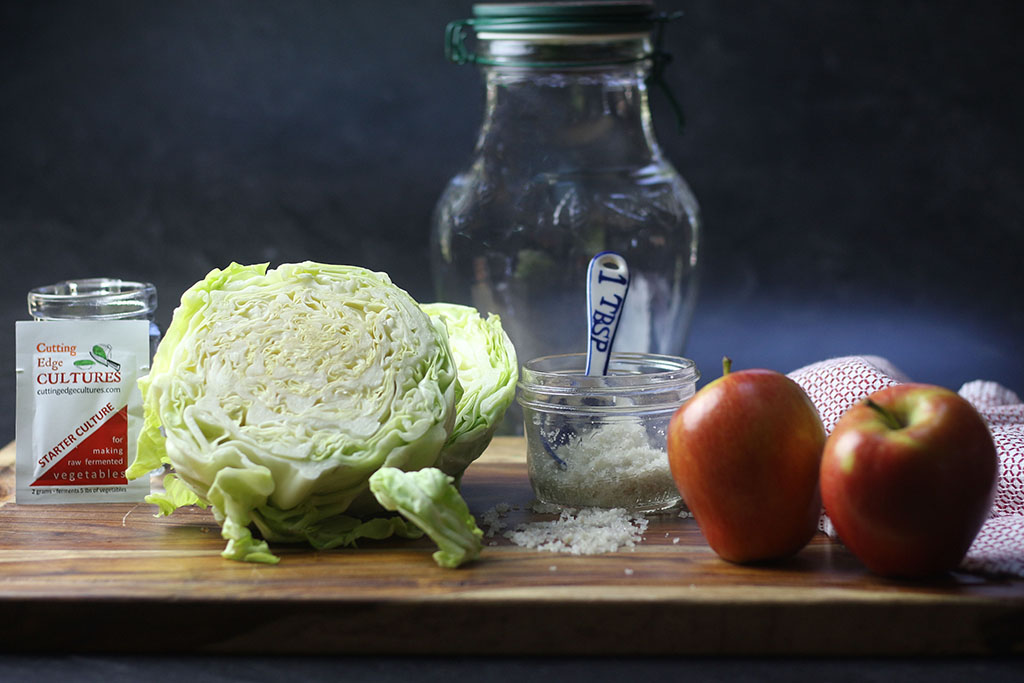
H. Pylori and Fermented Foods
Helicobacter Pylori
Last October, someone asked a question on my forum.
"Hi! I am a new member, diagnosed with H. Pylori bacteria in July, currently on my second round of tough antibiotics. I am currently drinking one glass of store-bought kefir daily (just rec’d my order of stuff to make my own) and have some kraut fermenting. I want to start the process long term to rebuild my gut and keep this terrible bug from coming back. I have lost a lot of weight and energy. If anyone here has used fermented foods as part of a successful H. pylori eradication I would love to chat with you!"
We gave her some info and articles I'd written and just a few months later she submitted A Lives Touched submission that was quite moving. This is it in her own words.
 About six months ago, I was playing with my granddaughter and noticed that I couldn’t concentrate on her because I was vaguely nauseous. I just assumed it was something I ate and ignored it. As the days went by though, this nausea continued, as well as other digestive symptoms such as terrible gas pain, cramping, and constipation. I went to the doctor and began a series of tests, imaging, and scopes to wind up with a diagnosis of H. Pylori, a stomach bacteria that I had never heard of. Although most people have this bacteria present in small amounts, mine had gotten out of balance and caused acute gastritis and low-level reflux. After one series of terrible antibiotics and other medications, I still tested positive. I was miserable, both mentally and physically, had lost a lot of weight, and even started sessions with a therapist. When I decided to do a second round of even harder antibiotics, I stumbled across your website and began to read about the benefits of fermented foods. Although I feel like I am well-read on health issues, I had never really considered the impact that the gut biome can have on overall health! So this time instead of probiotic capsules, I decided to try fermented foods. I ordered your easy kefir packets, jars, veggie starter, and one of your books and got busy! I drank 1-2 cups of kefir a day, always in a green smoothie with your Prebio added, I made apple kraut and ate it daily and drank the juice! I decided to drink GT kombucha for now as I didn’t want to take on too much at once. I am now 8 weeks past my last antibiotic regimen and just tested negative! My appetite is returning, and it feels like my brain is lighting up again, along with a zest for living! I cannot thank you enough for all the information you provide. I am sharing this with everyone I know, and will keep eating and drinking these awesome fermented foods for the rest of my life! ~Cindy Baird
About six months ago, I was playing with my granddaughter and noticed that I couldn’t concentrate on her because I was vaguely nauseous. I just assumed it was something I ate and ignored it. As the days went by though, this nausea continued, as well as other digestive symptoms such as terrible gas pain, cramping, and constipation. I went to the doctor and began a series of tests, imaging, and scopes to wind up with a diagnosis of H. Pylori, a stomach bacteria that I had never heard of. Although most people have this bacteria present in small amounts, mine had gotten out of balance and caused acute gastritis and low-level reflux. After one series of terrible antibiotics and other medications, I still tested positive. I was miserable, both mentally and physically, had lost a lot of weight, and even started sessions with a therapist. When I decided to do a second round of even harder antibiotics, I stumbled across your website and began to read about the benefits of fermented foods. Although I feel like I am well-read on health issues, I had never really considered the impact that the gut biome can have on overall health! So this time instead of probiotic capsules, I decided to try fermented foods. I ordered your easy kefir packets, jars, veggie starter, and one of your books and got busy! I drank 1-2 cups of kefir a day, always in a green smoothie with your Prebio added, I made apple kraut and ate it daily and drank the juice! I decided to drink GT kombucha for now as I didn’t want to take on too much at once. I am now 8 weeks past my last antibiotic regimen and just tested negative! My appetite is returning, and it feels like my brain is lighting up again, along with a zest for living! I cannot thank you enough for all the information you provide. I am sharing this with everyone I know, and will keep eating and drinking these awesome fermented foods for the rest of my life! ~Cindy Baird
What is h. pylori?
Many gastrointestinal diseases are caused by Helicobacter pylori (H. pylori) infection. H. pylori can cause gastric inflammation which may lead to gastritis, ulcers, and even gastric cancer.
H. pylori is a type of gram-negative bacteria that infects the lining of your stomach. This bacteria can stick to stomach cells and your stomach can’t protect itself very well. It can cause inflammation and damage the tissue in your stomach and the first part of your small intestine (the duodenum). In some cases, it can also cause painful sores called peptic ulcers in your upper digestive tract. H. pylori can also get the stomach to make more acid, causing painful symptoms of gas and bloating.
But here's the good news!
Many traditional fermented foods and beverages that contain probiotic microbes can help with H.pylori. A few studies showed that consumption of probiotic foods such as kefir, cultured vegetables and kombucha are beneficial in helping with H. pylori infection. These probiotic foods bring in a fresh inocula of microbes to your gastrointestinal tract. Several strains such as Lactobacillus, L. plantarum, and Saccharomyces are especially effective in bringing balance to the gut when infected with H. pylori.
 Kefir and Fermented Sauerkraut
Kefir and Fermented Sauerkraut
Kefir was found to be very effective in the eradication of H. pylori and reducing side effects when used along with antibiotic therapy.[1] Another in vitro study proved that L. plantarum, found in sauerkraut (fermented cabbage), had an anti-Helicobacter activity as well.[2] Interestingly, the main inhibitory activity is mostly associated with the cell walls of the stomach.
 Controls H. Pylori and Candida
Controls H. Pylori and Candida
Saccharomyces boulardii is another probiotic yeast that is found in kombucha that can help with H. Pylori and candida. S. boulardii is absent from the natural gut since it is a transient yeast that passes through the intestines after ingestion. If taken every day, it provides a steady stream in the colon within three days and is cleared from the stools two to five days later. [3] It does not attach to the mucosal cell lining, but works its magic as it moves through the gastrointestinal tract. When S. boulardii is present, it inhibits toxins from binding to intestinal receptors and steals the metabolites it needs to survive. Thus many pathogens pass out of the body unable to survive in the presence of this powerful probiotic. They even found that other pathogen strains like E. coli, Salmonella typhimurium, and S. typhi adhere to the surface of S. boulardii, thus preventing them from attaching to the mucosal lining and passing through the body rendering them harmless. S. boulardii can also dramatically reduce the population of the bacteria H. pylori in the gut to levels where it does not cause peptic ulcers or cancer.[4]
You Need a Little Bit of H. Pylori
Here is another insight about a different ailment, acid reflux, which deals with the pathogenic bacterium H. pylori. Until recently, H. pylori has been put forth as a “bad” bacterium which we seek to eliminate. But now, an interesting twist in its story has been discovered: H. pylori protects against acid reflux. As I have said throughout my articles, we are seeking balance, so it doesn’t surprise me that H. pylori can be helpful if it is kept in check.
Martin J. Blaser, M.D., elaborates on the research around H. pylori in his book Missing Microbes. He says that, when present in large numbers, this bacterium can cause ulcers and even stomach cancer in some people. But H. pylori also helps regulate stomach acidity, which plays a large part in the symptoms of GERD. When an ulcer occurs, the standard treatment is using antibiotics to eradicate H. pylori which heals the ulcers but also raises the acidity of the stomach. Blaser and his colleagues found that the patients without H. pylori were eight times more likely to have acid reflux. 2 So the treatment that eliminated H. pylori worsened acid reflux and even esophageal cancer.
What To Do?
So what to do if you have too much H. pylori? Get help, but also balance your gut with prebiotic and probiotic foods - especially kefir, cultured veggies and kombucha. Keep H. pylori in check by adding lots of beneficial microbes that allow all your bacteria to work for you. If you have lots of good microbes, the ones that might get out of hand will stay in balance. Cultured foods plus whole, real, natural sources of nutrition will allow your body to do what it was designed to do — keep you in balance.
Listen To My Podcast
Many gastrointestinal diseases are caused by Helicobacter pylori (H. pylori) infection. H. pylori can cause gastric inflammation which may lead to gastritis, ulcers, and even gastric cancer. But here is the good news! Many traditional fermented foods and beverages that contain probiotic microbes can help with H.pylori in a powerful way. Check out the podcast to learn more.
References:
- https://pubmed.ncbi.nlm.nih.gov/21186984/
- https://pubmed.ncbi.nlm.nih.gov/17032224/
- Saccharomyces boulardii CNCM I-745 supports regeneration of the intestinal microbiota after diarrheic dysbiosis – a review
- https://www.ncbi.nlm.nih.gov/pmc/articles/PMC4733292/
- M.J. Blaser, Missing Microbes: How the Overuse of Antibiotics Is Fueling Our Modern Plagues, New York, Henry Holt Publishing (2014): 123–9.
Are you on the list?
Sign up today and I'll send you my free Getting Started Guide!
Each week I'll send you updates, tips, recipes, and more! You might even be a winner of my weekly giveaway! (starter cultures, memberships, and more!)
Come be a part of my cultured food family!

